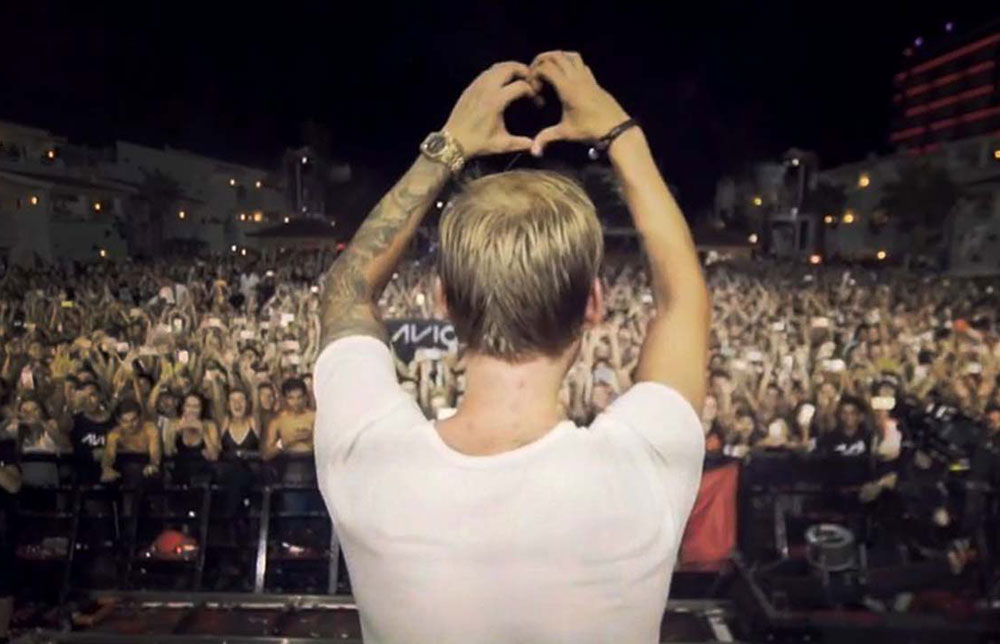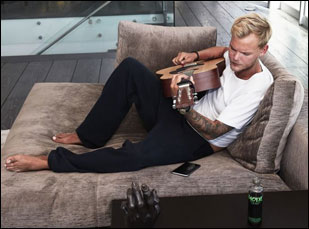In an early scene from “Avicii: True Stories,” the Swedish artist born as Tim Bergling describes the feeling of going out on stage as if it was like jumping out of a plane, referencing the exhilaration of looking out over a vast crowd of thousands and taking in their energy to put back into his music. Of course, there’s an implication of danger as well, which it’s likely Levan Tsikurishvili hadn’t given a second thought to as he was filming Bergling when he said this, but the filmmaker finds himself in an unusual position now, having finished and even released the intimate portrait of the massively successful DJ in some parts of the world before he took his life in April of this year, but due to release patterns, the film is only arriving in America now and internationally on Netflix in another week, seemingly asking to be picked apart for clues about what would lead Bergling to such desperate measures.
While Tsikurishvili is clearly uncomfortable speaking about the passing of someone who he grew close to over the course of filming for six years, he can take comfort in doing justice to Bergling by simply being there for his rise, using the remarkable access he was given to tell a story bigger than Avicii when the musician is on the precipice of fame and fortune with such hits as “Levels” and “Wake Me Up” in his early twenties. Starting in Stockholm where Bergling can be seen experimenting with different beats as he’d been doing since he was 16, the film considers what happens when this distinctly 21st century artist, more comfortable behind a computer than around people, is thrust into performing in arenas. While Avicii doesn’t lack confidence, he’s insular and introspective, disappointed with the small talk he’s forced to make at industry gatherings rather than having meaningful conversations with people and as his success grows, so too does his disillusionment with what’s required of him professionally beyond making music as the constant touring takes its toll both psychologically and physically, resulting at one point in pancreatitis.
Tsikurishvili keeps a running tally of the staggering number of concerts Avicii performs, but although it chronicles the constant grind, “Avicii: True Stories” often taps into the same joy that fueled Bergling to continue to create, showing how a few notes tapped out on his keyboard evolve into a banger for the clubs and sits in on jam sessions with Nile Rodgers and Coldplay that illustrate the real work that goes into each song. Along the way, the director gathers interviews with the likes of Wyclef Jean and David Guetta to put Avicii’s career into context, speaking to his particular genius as well as the pressure that never leaves to deliver the next hit. Recently in Los Angeles, Tsikurishvili spoke about creating an honest biography of Bergling, how his own grueling schedule contributed to understanding what his subject was going through and creating a celebration of Avicii that will endure.
It came from something very spontaneous. We met at a dinner six or seven years ago in Sweden through a charity project called Hunger Race in Africa, and soon after, we started to talk [about] maybe doing an documentary. It was a super naive idea – we didn’t know what the focus would be, but knew we had a great story, which was to [have this] producer in Sweden who achieved so much success in a short period of time. We didn’t know the end of it or the development of it, so we filmed the whole documentary during three years intensively — of course, it took more than three years because I was on and off from the beginning, and the first two years, it was one show here and there and one tour in Australia and one in Europe and I decided to push the deadline for the film year by year and never give up on the story. I was fortunate enough to have his trust and his blessing and I’m happy that he let me go on so many years together with him.
The access is indeed pretty astounding – you’re in the hospital room with him in Australia when he learns he has pancreatitis and you’re one of three guys in the room with him when he announces he’s going to quit touring. What was it like developing that relationship with him?
When you are on the road [together] so many years and experiencing so many things together, it just became very normal. You’re not thinking, “Oh, now we are friends. We are colleagues,” but when you’re sharing the house with someone and their daily life, you’re not thinking this guy is this successful DJ. You’re just seeing him as anyone else. Of course from the beginning, we didn’t know each other, so I was very interested in knowing more about his mindset and what kind of person he was.
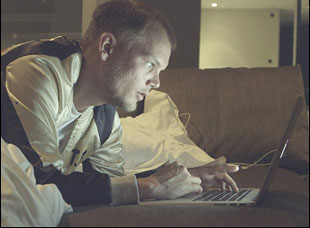
We were traveling to so many countries – I think we did 49 countries in three years — and we were everywhere you can think, so to be on the go all the time takes lots of energy as you’re focusing on the film all the time to capture all these moments, and [with] different time zones and all that, you have to make sure that you’re getting sleep. [laughs] At the same time, it’s very interesting because you become so knowledgeable about cultural differences — how things work in certain countries, so you’re becoming an international citizen that can live in any of those countries because it doesn’t feel like you have a home. All the countries are your home because you know people in all of them, so you’re not thinking, “Oh now I’m in China, now I’m in U.S.A., now I’m in this and that country,” you’re just going with the flow and it feels like one entire huge country even you’re changing countries all the time.
And when you’re an artist and you’re performing for 50,000, 60,000 people, it just becomes a very normal thing — it is a very cool experience and a super special thing to be there, but after a while, you start to not see that in a way anymore. So from the beginning, I was impressed by that and wanted to capture it as well as possible, but the last three years, it was just work, so you see that as any other job and the job still has to be done, even though there’s lots of excitement around it.
It seems like there’s two major sit-downs in the film. When was the right time to get those?
That’s right. I did the last interview with him at the end of September 2016 in Madagascar at an island called St. Marie and I didn’t want to do those sit-downs early on because I’m letting my story play out in front of the camera, so I wanted to follow the story and at the end, [it felt like it] was the right time to do it because he was retired from touring, so there was no stress, no nothing. It was just a super easygoing schedule, so that was the best time to do it.
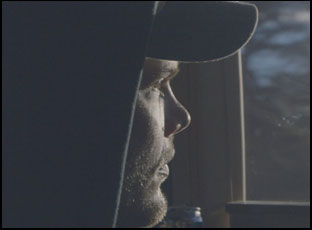
When you work with a genius that does great songs, it’s difficult to apply the other music to that — almost impossible, I would say, but I think we succeeded, [using] the right kind of music besides his own music. I worked with Thomas Kollder, a great music producer that scored the entire documentary, and he spent lots of hours to create those different songs to catch the feeling of that emotional story I wanted to tell.
With so many hours of footage, was there anything you had to cut out for time that you miss?
It’s hard to keep everything you want to keep even though you can have a scene you’re very in love with, but I had this great [moment] with Mike Posner when he met Avicii right after a radio interview. They were talking about a song that Mike wrote [“I Took a Pill in Ibiza”] about Avicii and he’s mentioning his name as well and that conversation was something I was in love with from the very beginning because it was so honest and funny to see those different musicians standing there, telling their stories about the song. But it didn’t serve the general storytelling structure, so I had to cut it.
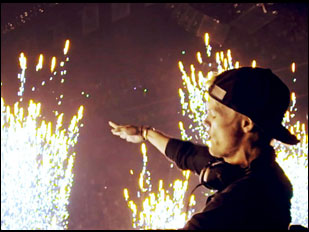
It’s exciting to be able to witness [how] they can go on, working on a single note the entire day — and you don’t have the understanding of why they are doing that. But then when you hear that note play such a huge part in a song, you’re really getting the respect of how they work in a completely different way. The difference [on the tone of a note] can be “doo” [to] “dee,” and as a filmmaker, I may not understand then and there why they are working so hard on a single note, but if they change a note, then it changes the tone of the song, so that means they have to go through everything from the beginning and make sure that note is on point, so it was exciting to see other creative people do their own thing.
The film has had an unusual release – it came out abroad before Avicii’s untimely death, but then it disappeared shortly after, only to reemerge now. What’s it been like putting it out into the world at this point?
I don’t know what to say, to be honest with you. Of course, I see the film in a different way, but I also feel like the film honors [Avicii] a lot and I’m proud that we are able to share it with the fans. The film had never been released in the U.S.A. [because of some] technicalities, but now we do the release and I’m super proud of it because it honors him in a great way.
“Avicii: True Stories” opens in New York on December 21st at the Cinema Village and will start streaming on Netflix on December 28th.




